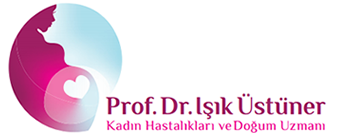Ovarian Cyst
 What is an Ovarian Cyst? How Is It Treated?
What is an Ovarian Cyst? How Is It Treated?
How is an ovarian cyst treated? Ovarian cysts are commonly seen in women between the ages of 20-45. This is because the ovaries are actively used in this age range. It is a rare condition that can be seen in children and advanced age. These cysts, which are mostly benign, very rarely turn into cancer. Ovarian cysts are usually encountered due to genetics, hormonal changes, complications in the sebaceous glands or developmental disorders. Treatments applied to create pregnancy may also cause egg cyst formation due to ovulation-provoking drugs. Although most cysts are not dangerous, they can sometimes pass spontaneously without the need for treatment.
What is an Ovarian Cyst?
Is ovarian cyst treated? For the answer to the question, first of all, it is necessary to talk about what the ovary is. The ovary is a structure located on both sides of the uterus in women and produces the hormones progesterone and estrogen. Glands are very important to the female reproductive system. Sometimes in these glands, sacs filled with fluid and surrounded by a tissue called the cyst wall may form. These sacs are called ovarian cysts. There is more than one type of ovarian cysts and they are basically divided into two groups:
What are the Symptoms of Ovarian Cyst?
How is an ovarian cyst treated? Sometimes the cysts may not cause any pain and may not show any symptoms and may be discovered incidentally during the examination. These are easily treated. Cysts formed in the ovaries do not usually cause a functional disorder in the organ, like cysts formed in other organs. For this reason, there may be no symptoms. In cases where symptoms are seen, these can be listed in general as follows:
Pain in the groin, Pain and swelling in the abdomen, Menstrual irregularity, amenorrhea, Painful menstruation, Digestive system disorders
Urinary tract complaints, Pain during intercourse, Nausea, vomiting, Tenderness in the breasts, Pain in the hips (pelvis area) and thighs, Palpable mass, Inability to conceive, Abnormal weight gain, Hairiness
Serious symptoms that require medical attention include:
Persistent nausea, vomiting, Loss of appetite, High fever, Severe pain
In cases where these symptoms are observed, immediate medical attention or medication is required. Even if it does not show any symptoms, regular follow-up by a specialist may be desired when an ovarian cyst is detected. This is to make sure it won't cause any problems in the future (it won't get bigger or turn malignant).
